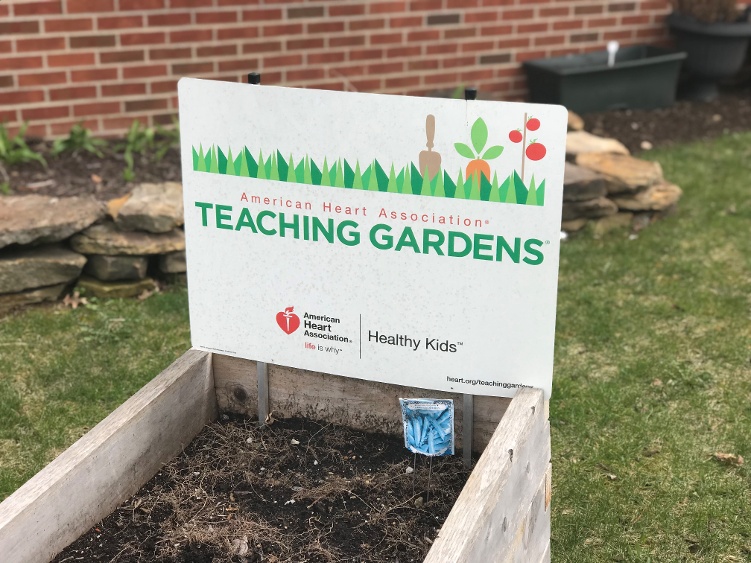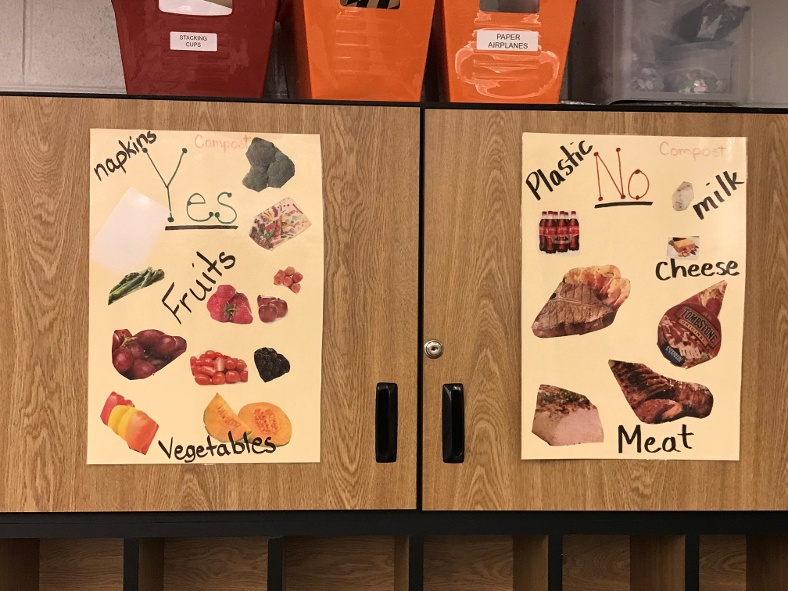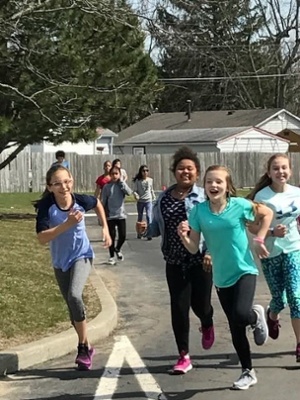Harrison Hill Part 3: Healthy Kids
This is the last blog post of a three-part series to tell you about a unique elementary school, nestled in Lawrence: Harrison Hill School. That part of Lawrence is economically depressed, and its residents frequently struggle with poverty and the challenges that go with it. But Harrison Hill is unusual as a community school: services that families need are accessible at the school (part 1), and School Community Liaison Neal Gore has developed an exceptionally robust family engagement program (part 2). The third piece of this work is improving kids’ health by creating a healthy environment where making good nutrition and physical activity choices are part of daily life.

Both food access and poor nutrition are problems in the neighborhood, so Neal has incorporated several programs that address both hunger and the need for nutritious food. To start, Neal built 20 raised garden beds where he leads the students through the planting and tending of the gardens. This time of year, they are busy. Neal also built a composting station near the gardens. The cafeteria composts all of the food it can, and children are taught what is compostable every day.

Uneaten food doesn’t go to waste. Mondays and Wednesdays uneaten, unopened food is “rescued” and donated to local pantries for others to access.
Food education programs combine classroom time with tools to take home so that lessons learned can become part of a family’s daily habits. A program that has just wrapped up at the school was brought in by the Marion County Health Department. A professional from the Department worked with second and third graders to teach them about eating fruits and vegetables, including tasting new foods. Additionally, second graders are able to sign up for a special Cooking Matters class, geared for young children. Harrison Hill also offers a Cooking Matters class for families, where families learn to prepare a meal in class and are then sent home with the recipe and a bag of the groceries needed to prepare the meal. For the most recent session Neal reports that he had twice as many people sign up as they had space for – these programs are very, very popular.

Harrison Hill offers several programs to ensure kids have enough to eat when they’re not in school. They participate in the Back Sack program, where kids can bring a backpack of food home on the weekends. In the summer, they offer Summer Servings where a mobile food truck serves lunch at the school Neal says there’s a line of kids every time.
This summer, Neal will conduct a garden club, where a Purdue master gardener will guest teach. The group will plant a special pizza garden in order to grow all of the ingredients needed to make pizza (basil, tomatoes, peppers, etc.). The kids will also be sent home with starter plants and seeds so they can duplicate their efforts at home.
Neal and Harrison Hill are working very hard to meet the needs of their neighbors. As we mentioned in the first installment of this blog series, the community model for a school will be adopted by four additional schools in the Lawrence Township School system to begin in the 2018-2019 school year. Helping families establish good habits around nutrition and physical activity requires a holistic approach, and Harrison Hill can be a model for other schools working toward the same goals.
Harrison Hill is part of Jump IN’s community demonstration project that’s competing in the Healthiest Cities and Counties Challenge. Jump IN is very grateful to the many partners in Greater Lawrence and the Far Eastside that we’re working with and will continue this work long after the Healthiest Cities and Counties Challenge is over. Jump IN is dedicated to helping all residents have access to nutritious food and physical activity so that we can reduce childhood obesity and the dangerous health problems associated with it. More information about the Healthiest Cities and Counties Challenge can be found here. More information about Jump IN and our programs can be found at www.jumpINforHealthyKids.org.
Topics: Healthy Eating, Schools
Subscribe for more
Want more ideas for healthy schools, workplaces, child care providers, and families? Subscribe to our blog for weekly tips delivered right to your inbox!
Harrison Hill Part 2: Unparalleled Family Engagement NEXT »
Workplace Wellness Now
